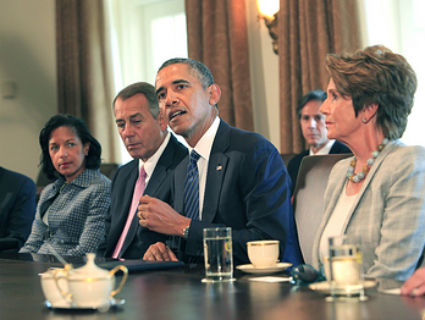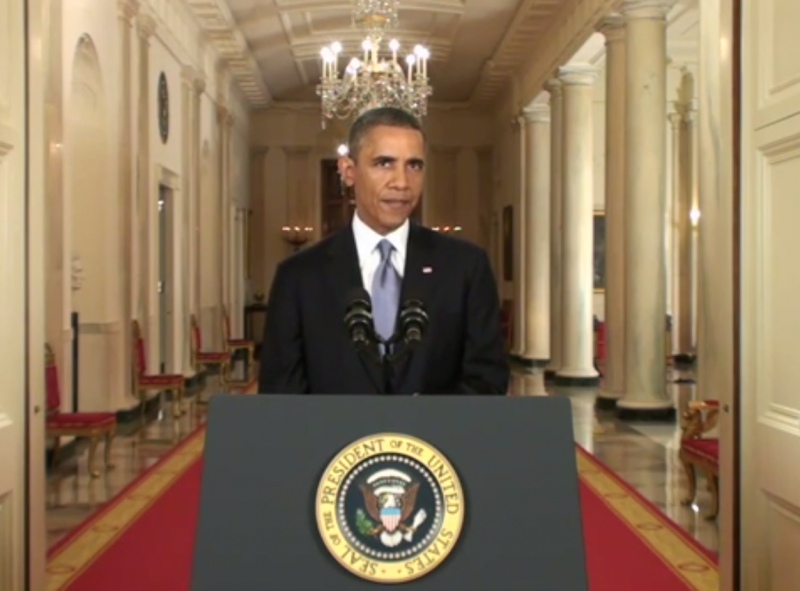
President Obama meets with congressional leaders in the Cabinet Room of the White House on September 3, 2013.Prensa Internacional/ZUMA
On Tuesday night, President Obama took his case for bombing Syria to the American public, but he also kept open the possibility that US attacks could be averted if Bashar al-Assad’s regime agrees to give up its chemical weapons. Obama asked lawmakers to delay a vote on whether to approve attacks on Syria, and just like that, the Syria debate in Congress went from frenzied to frozen. It’s crickets on Capitol Hill.
Senate Majority Leader Harry Reid (D-Nev.) canceled the vote on Syria he was expected to schedule for this week. The Senate canceled an afternoon briefing on Syria. Lawmakers instead gathered on the US Capitol steps for a remembrance of the attacks of September 11, 2001, and trotted out onto House and Senate floors to opine on the budget, Obamacare, 9/11, and the Energy Savings and Industrial Competitiveness Act of 2013. On Syria, they mostly waited. “Everyone’s just sitting around,” says a Senate Democratic aide.
That’s quite a change from the past week or so. To build support for bombing Syria, the White House threw practically every staffer and surrogate into the lobbying effort, briefing congressional Democrats and Republicans and trying mightily to convince skeptical lawmakers why they should vote yes on an authorization to use military force in Syria. The mighty American Israel Public Affairs Committee dispatched 300 members to the Hill to twist arms and convince lawmakers to support the attacks. By Monday, the president and members of the administration had met with some 85 senators and more than 165 House members, according to PBS NewsHour. It was an all-hands-on-deck effort—and it wasn’t working.
Obama’s Tuesday night speech to the American public was, among other things, a timeout call. By looks of Capitol Hill on Wednesday, Congress is more than happy to take a breather and put off, for now, what was sure to be a divisive vote for both parties.












